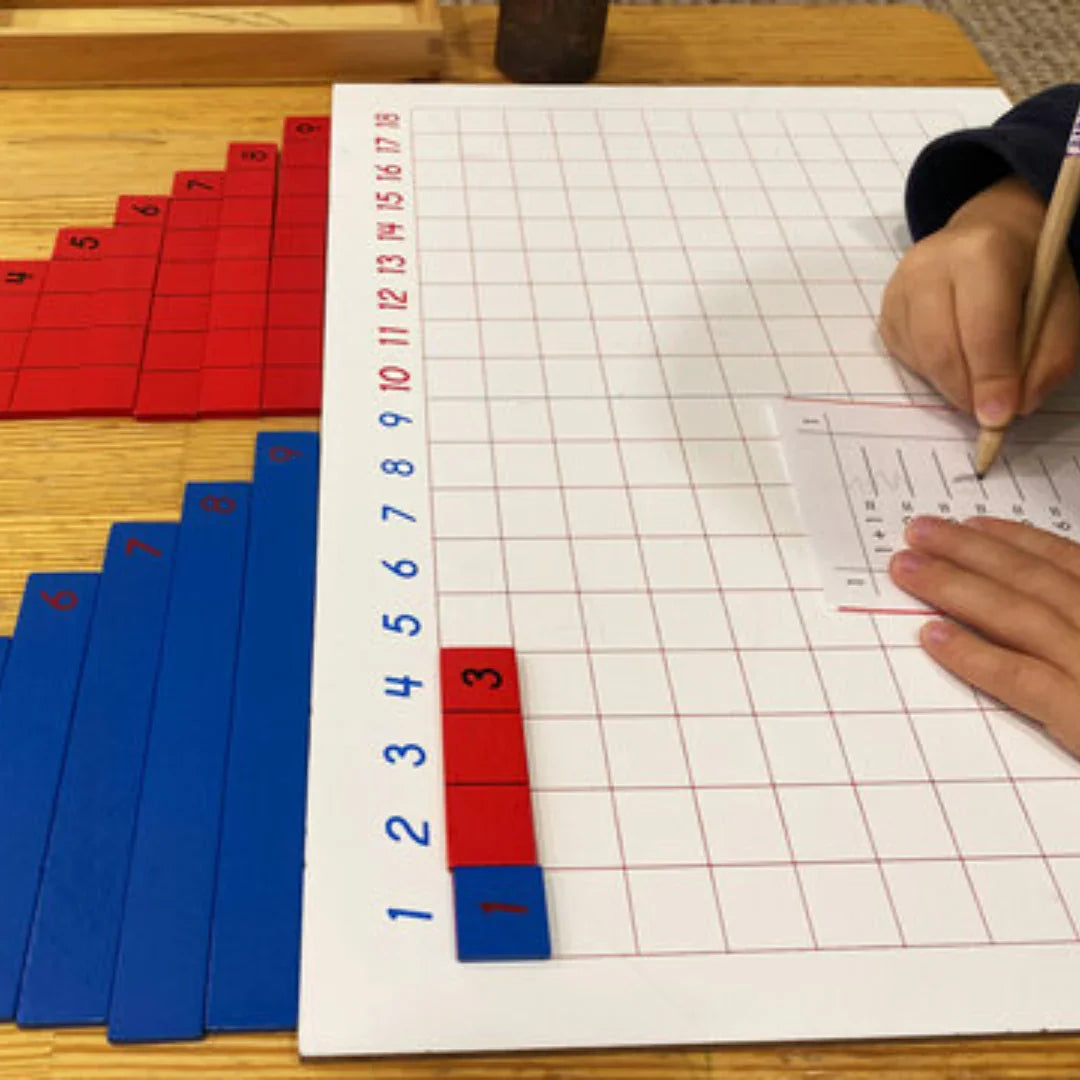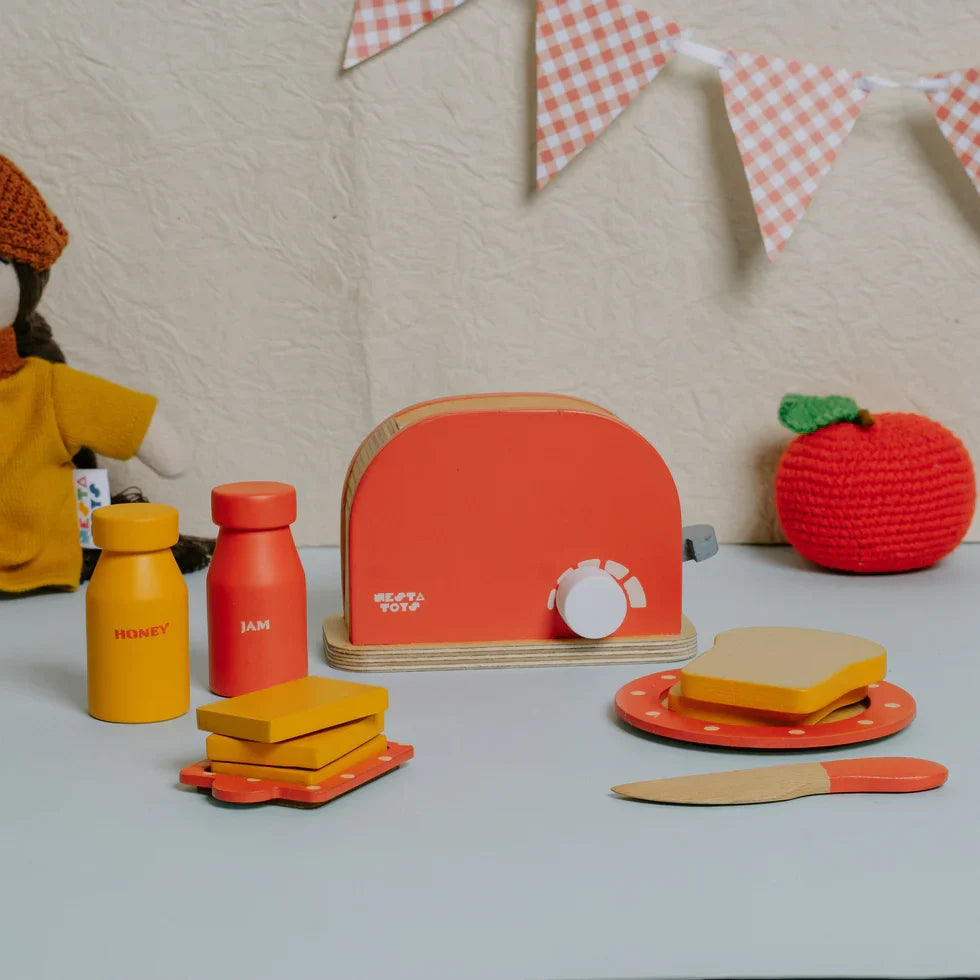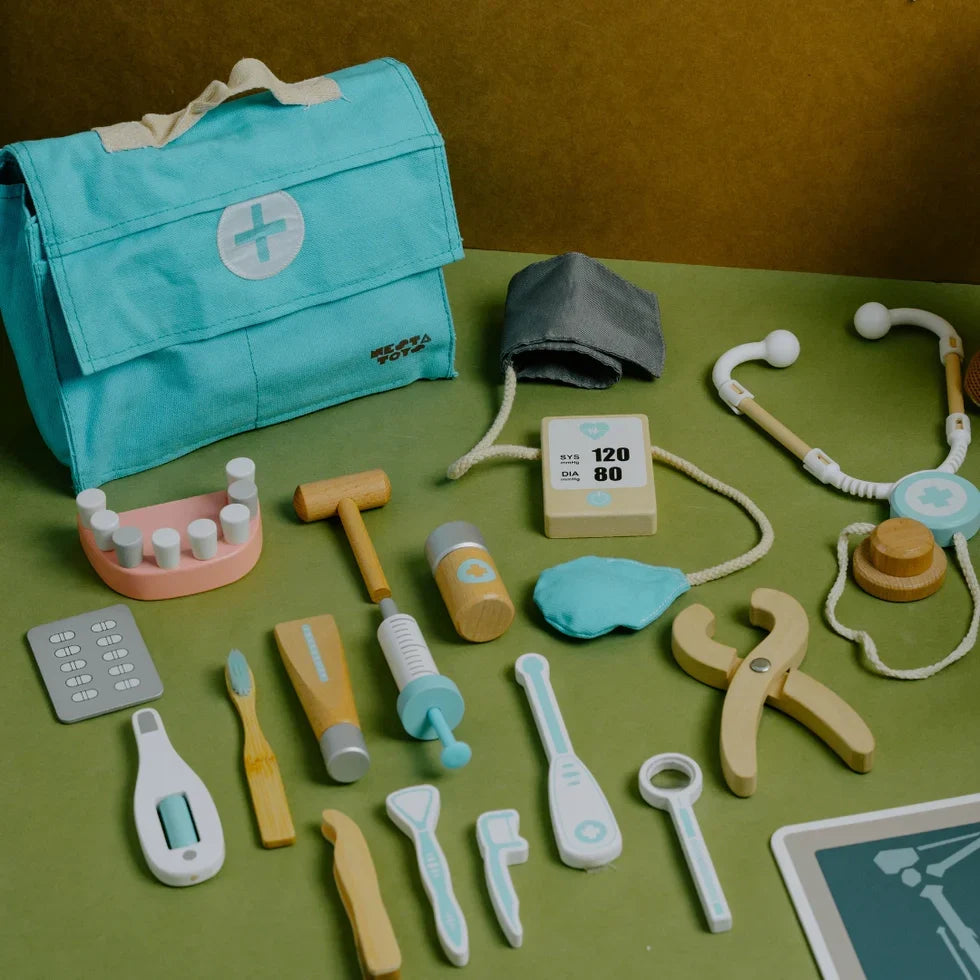This Montessori-inspired addition strip board helps young children grasp addition concepts in a fun, hands-on way. It features a board with numbered squares and two sets of numbered strips for interactive learning. By manipulating these strips, children can visually represent addition problems and discover patterns.
Aim:
- To help the child concentrate and memorize all the basic combinations in Additions
and realize that there are no other combinations beyond 9 + 9.
- Awareness of the commutative law of addition

How It Works
The board provides a concrete foundation for understanding abstract mathematical concepts. As children place the strips, they physically see how numbers combine to form larger quantities. This tactile experience enhances their comprehension and retention.
The addition strip board is particularly effective in teaching:
- Basic addition facts: Children can master all combinations from 1+1 to 9+9.
- Commutative property: By reversing the order of the strips, children grasp that changing the order of addends doesn’t change the sum.
- Number sense: Regular use of the board strengthens children's understanding of number relationships.
The Learning Process
Introducing the addition strip board should be a gradual process. Begin with simple number combinations and gradually introduce more complex ones. Encourage children to explore, make mistakes, and recognize patterns on their own for a deeper understanding of addition.
Key steps in the learning process:
- Introduction: Familiarize the child with the board and the strips.
- Concrete experience: Demonstrate how to use the strips to represent addition problems.
- Independent exploration: Allow the child to experiment with different combinations.
- Pattern recognition: Guide the child to observe patterns in the addition facts.
- Reinforcement: Use worksheets and real-life examples to solidify learning.
Extending Learning
To make the most of the addition strip board, incorporate these activities:
- Create your own strip board: Let children design their own boards and strips, fostering creativity.
- Addition games: Develop games using the strips to make learning enjoyable.
- Storytelling with numbers: Create stories based on addition problems to make math engaging.
Benefits of the Addition Strip Board
The addition strip board offers several advantages:
- Hands-on learning: It strengthens understanding by allowing children to physically manipulate numbers and see addition in action.
- Visual representation: It helps turn abstract concepts into tangible learning experiences, making addition easier to understand.
- Confidence building: Success with the board boosts children’s mathematical confidence.
- Independent learning: Promotes self-discovery and problem-solving skills.
By incorporating the addition strip board into early math education, we empower children to become confident and proficient mathematicians.
Montessori Inspired Toy Collection - Explore our Montessori-inspired toy collection, where premium quality meets safety and sustainability. Crafted from luxurious beech wood and soft knitted cotton, each toy is finished with non-toxic paints, encouraging your child’s natural curiosity and creativity.










